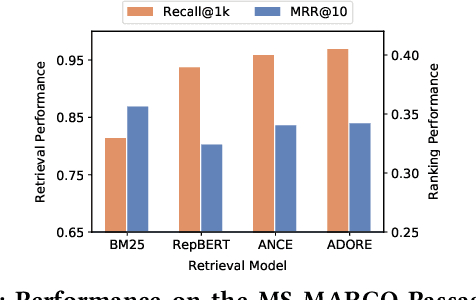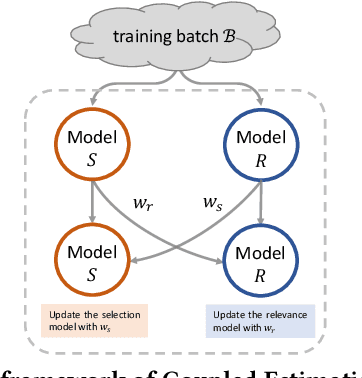Hard Negatives or False Negatives: Correcting Pooling Bias in Training Neural Ranking Models
Paper and Code
Sep 12, 2022



Neural ranking models (NRMs) have become one of the most important techniques in information retrieval (IR). Due to the limitation of relevance labels, the training of NRMs heavily relies on negative sampling over unlabeled data. In general machine learning scenarios, it has shown that training with hard negatives (i.e., samples that are close to positives) could lead to better performance. Surprisingly, we find opposite results from our empirical studies in IR. When sampling top-ranked results (excluding the labeled positives) as negatives from a stronger retriever, the performance of the learned NRM becomes even worse. Based on our investigation, the superficial reason is that there are more false negatives (i.e., unlabeled positives) in the top-ranked results with a stronger retriever, which may hurt the training process; The root is the existence of pooling bias in the dataset constructing process, where annotators only judge and label very few samples selected by some basic retrievers. Therefore, in principle, we can formulate the false negative issue in training NRMs as learning from labeled datasets with pooling bias. To solve this problem, we propose a novel Coupled Estimation Technique (CET) that learns both a relevance model and a selection model simultaneously to correct the pooling bias for training NRMs. Empirical results on three retrieval benchmarks show that NRMs trained with our technique can achieve significant gains on ranking effectiveness against other baseline strategies.
 Add to Chrome
Add to Chrome Add to Firefox
Add to Firefox Add to Edge
Add to Edge